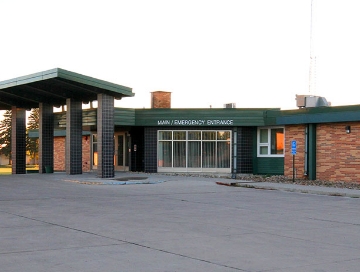

“I cannot wait to get my colonoscopy”, said no one ever. But did you know that a colonoscopy is the “Gold Standard” procedure used in diagnosing colon cancer? March is colon cancer awareness month. The United States Preventive Services Task Force (USPSTF) is an independent panel of national experts that assists in giving recommendations on disease prevention and evidence-based medicine. The USPSTF recommends that adults aged 45-75 be screened for colorectal cancer.
Together with the USPSTF, the Colon Cancer Coalition, the American College of Gastroenterology, the American Gastroenterological Association, and the American Society for Gastrointestinal Endoscopy share in the decision to start screening as early as age 45 for early detection. The decision regarding the need to be screened should be individualized and discussed with your primary care provider. The need to be screened may also be adjusted based on personal and family history, genetic predispositions, or other considerable risk factors. Colorectal cancer is the third most common type of cancer among both men and women. It is also one of the most preventable types of cancer.
Colon cancer screening is available at Langdon Prairie Health. There are three different ways to test for colorectal cancer that we recommend at Langdon Prairie Health. These include the fecal immunochemical test (FIT), Cologuard, and colonoscopy. A FIT test is a stool-based test where the provider will ask that you return a stool sample to the clinic and will be assessed for blood in the stool.
The Cologuard test is also a stool test. However, the Cologuard analyzes the DNA further and thus, if negative, this test is good for three years. The colonoscopy is either a screening or diagnostic procedure. The provider will insert a scope into the rectum and evaluate and remove any pre-cancerous lesions or obtain biopsies if permitted. Currently, we offer colonoscopies monthly with Dr. Mark Peterson. It should be noted that these are screening tools that are recommended by our local providers to detect colon cancer early.
These screenings and guidelines are used if a patient does not have any current gastrointestinal symptoms. It is important that even if you do develop symptoms prior to your next screening date, you should reach out to your primary care provider for further recommendations. Symptoms to monitor would be unintentional weight loss, significant change in your bowel pattern, mucus in stool, blood in stool, or changes in color of the stool.
Knowing the signs and symptoms of colorectal cancer is critical. If you have any questions regarding the need for screening or diagnostic studies to assist in detection of colorectal cancer, we recommend you reach out to one of our providers at Langdon Prairie Health.
 HIPAA SUBSTITUTE NOTICE
HIPAA SUBSTITUTE NOTICE